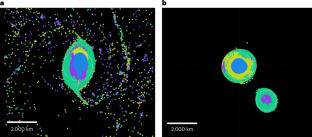2025-01-02 カーディフ大学
<関連情報>
- https://www.cardiff.ac.uk/news/view/2887576-too-hot-to-go-outside-female,-high-income,-and-older-groups,-most-likely-to-order-in-during-heatwaves
- https://www.nature.com/articles/s44284-024-00172-z
猛暑適応策としての都市型フードデリバリー・サービス Urban food delivery services as extreme heat adaptation
Yunke Zhang,Daoping Wang,Yu Liu,Kerui Du,Peng Lu,Pan He & Yong Li
Nature Cities Published:02 January 2025
DOI:https://doi.org/10.1038/s44284-024-00172-z

Abstract
More frequent global extreme heat events prompt behavioral adaptations, such as reducing outdoor activities to relieve potential distress. The emergence of innovative daily life services in cities offers new avenues for implementing such adaptive strategies. Here we investigate whether urban residents augment food delivery consumption as an immediate response to hot weather in China. Analyzing extensive food delivery service data across 100 Chinese cities from 2017 to 2023, we observe a significant surge in lunchtime orders, exceeding 12.6%, as temperatures escalate from 20 °C to 35 °C, and reaching 21.4% at 40 °C. These increments, coupled with reduced heat exposure via food delivery services, are more pronounced among female, high-income and older individuals, signifying varying degrees of benefit among consumers. We further reveal the transfer of heat exposure from consumers to delivery riders, highlighting the gains and pains introduced by food delivery services and the need for policy intervention. The quantification and findings in this study provide unique insights for the design of efficient policies promoting extreme heat adaptation and ensuring social equity while fighting climate change.



